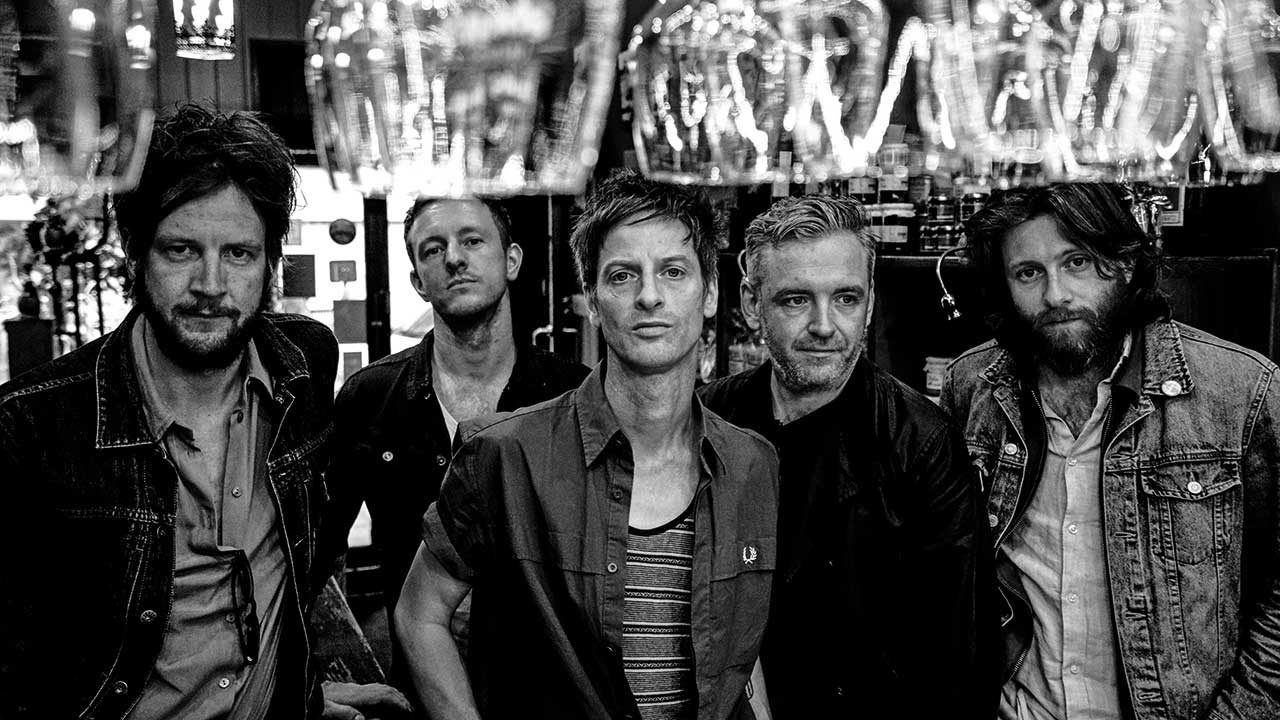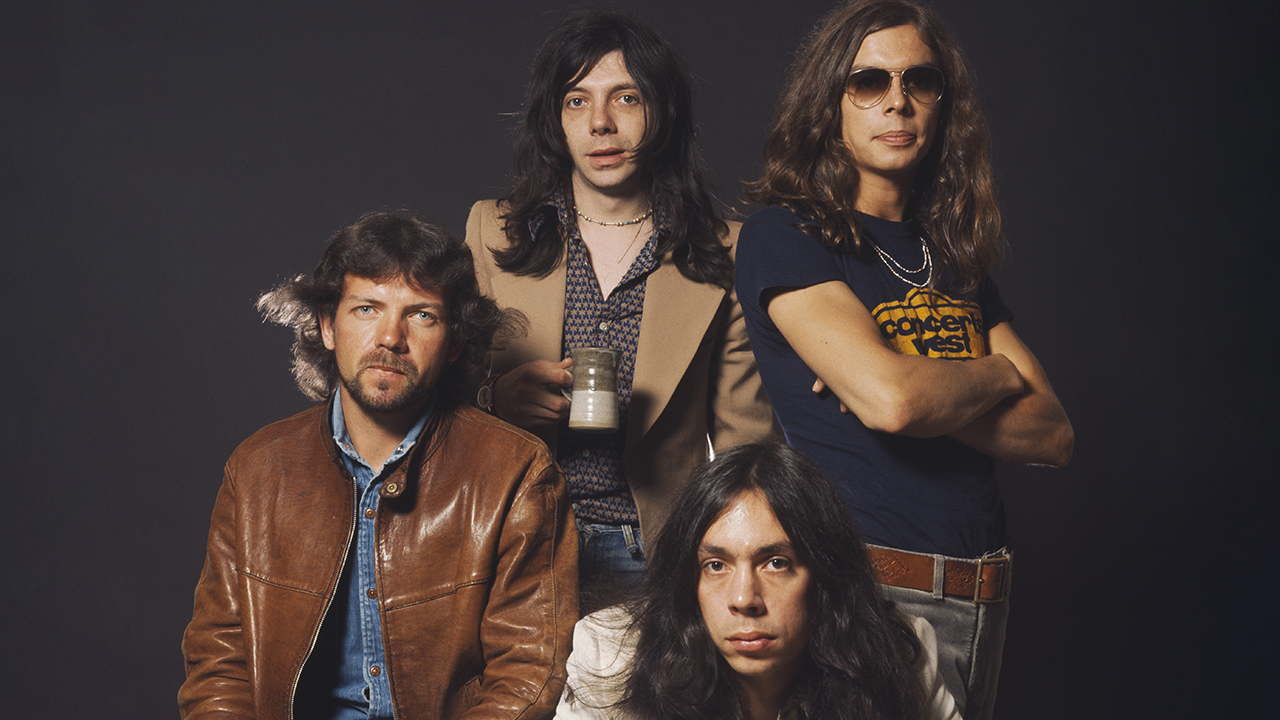Phil Campbell's Byson Family: I want this band to be a celebration of Glasgow
After quitting The Temperance Movement under a cloud, their former vocalist Phil Campbell says his new band The Byson Family is his rebirth

For (‘the other’) Phil Campbell, the analogy that works best is a failed marriage. “I was dreaming about The Byson Family at exactly the same time I was recording the third and last record with The Temperance Movement,” the singer says of his old and new bands.
“It’s like I’d completely and utterly fallen in love with someone else, who I couldn’t have, but I was making an album with my ex.”
Perhaps nobody ever really gets a fresh start in rock’n’roll. Since quitting The Temperance Movement in January 2020, the singer might have come home to Glasgow for the first time in two decades, reinvented his sound and cast himself as Philip Seth Campbell.
“The guy from the Pixies always changes his name,” he shrugs, “so I thought I’d start over, be this guy.” But his past repeatedly crashes the conversation, often at his behest. “I’ll talk about all that,” he says. “I’m desperate to talk about it. It’s all I think about. Especially in lockdown. Like, what the fuck just happened?”
To lead with The Temperance Movement is no snub to The Byson Family, whose debut album Kick The Traces is melodic, blissed-out and utterly brilliant. But to understand what excites Campbell about this latest project, you have to know what suffocated him in the last days of the blues-rock band crowned Best New Band at the 2013 Classic Rock Awards.
Campbell’s exit from The Temperance Movement was widely reported as ‘unexpected’. It wasn’t to him, though. Across the band’s decade-long run, he reflects, their growing heaviosity had started to grate.
“I got fed up singing at that level,” he says. “An hour and a half of singing at the very max, top of my range. I love my voice, but live I was starting to hate the sound of it coming back. All I can hear is my noisy-as-fuck, Glasgow bastard, shouty voice. And these people here can’t be enjoying it, can they? All they can hear is the snare drum and my fucking voice. Then there was always: ‘You’re like Bon Scott… You’re like Bon Scott…’”
Sign up below to get the latest from Classic Rock, plus exclusive special offers, direct to your inbox!
It wasn’t just that, though. When Louder spoke to Campbell back in February, he said his “wayward” attitude was a factor.
Was there a clash of lifestyles in TTM?
“There always was. Y’know, it’s rock’n’roll. So a guy in a band smoked a joint. Who cares? And the Temp – and this is the reason it got as far as it did – it had guys that were very sensible and wouldn’t fuck about. So me fucking about was a big deal. It was like: ‘Nobody fucks about in this thing. This is The Temperance Movement. Do everything right.’”
Weed was the extent of it, then?
“I’d smoke weed pretty much all the time. I did that on its own without booze for a long, long time. With weed some people fall asleep, but it wakes me up. And I take things too far.”
Did you get the impression the rest of band were getting frustrated?
“Yeah, definitely. Folk were leaving the band. And I think probably because I was making them feel uncomfortable.”
Founding guitarist Luke Potashnick and drummer Damon Wilson were long gone by the time Campbell played his final show with The Temperance Movement, headlining Planet Rockstock in December 2019.
“That last gig, I’m so fucking ashamed of it,” he says. “It was terrible. I couldn’t even remember the words. It came from not playing with them for a while, and relying on my muscle memory, which had gone. The gig before, at Steelhouse, that should have been the last one. I remember the feeling of: ‘This has been amazing!’”
Like he said, Campbell already had The Byson Family up his sleeve. As old faces from the Glasgow scene, he’d known Christian Fleetwood (guitar), Allan James (drums), Chris ‘Rusty’ Russell (keyboards) and Mike McDaid (bass) for years when they knocked out an impromptu Christmas gig in 2018. And the singer felt the stirring of a chemistry between them.
“I don’t want to be on my own,” he says. “I genuinely want to know what I will do with these four other guys. I want this band to be a celebration of Glasgow and friends and music.”
Campbell will admit to the influence of Fleetwood Mac, Neil Young and The War On Drugs, among others. But mostly, he says, when you cut The Byson Family’s album Kick The Traces, it bleeds tartan.
“You can hear Glasgow on this record. There’s Teenage Fanclub. They were smart bastards, right? The melodies, the words, the vocal harmonies, we wanted to snatch some of that. Snatch a bit of Travis. Put some Fratellis on there. Their song Chelsea Dagger, that’s the fucking Glasgow war cry. I loved Ricky Ross and James Prime in Deacon Blue. This record is a bit of everything that’s come from this city and fired us up.”
Perhaps some of Kick The Traces’ songs will join the pantheon. Opener Riches is unquestionably a song of the year, so pure and beautiful that you shiver in its presence. If You See The Emptiness is a steel-and-fiddle swoon, country ’n’ western by way of the River Clyde.
“Riches is about how we never take the time to see what we’ve got,” says Campbell. “I didn’t write If You See The Emptiness, but it’s about being out touring and saying to a lassie: ‘I fucking loved you the minute I met you and I still do’. If you feel something, say it. Act on the feelings you’ve got. Why not?”
Campbell knows a thing or two about acting on impulse. And while he admits his divorce from The Temperance Movement could have been handled better, with The Byson Family his heart is full.
“You can’t be in something that was so brilliant, fuck it up as much as I did, go through lockdown and not grow up a bit,” he considers. “I wouldn’t be here without the Temp. And with The Byson Family I’m still trying to be the best I can be.”
Kick The Traces is out now via Seshlehem/Townsend Music.
Henry Yates has been a freelance journalist since 2002 and written about music for titles including The Guardian, The Telegraph, NME, Classic Rock, Guitarist, Total Guitar and Metal Hammer. He is the author of Walter Trout's official biography, Rescued From Reality, a music pundit on Times Radio and BBC TV, and an interviewer who has spoken to Brian May, Jimmy Page, Ozzy Osbourne, Ronnie Wood, Dave Grohl, Marilyn Manson, Kiefer Sutherland and many more.

